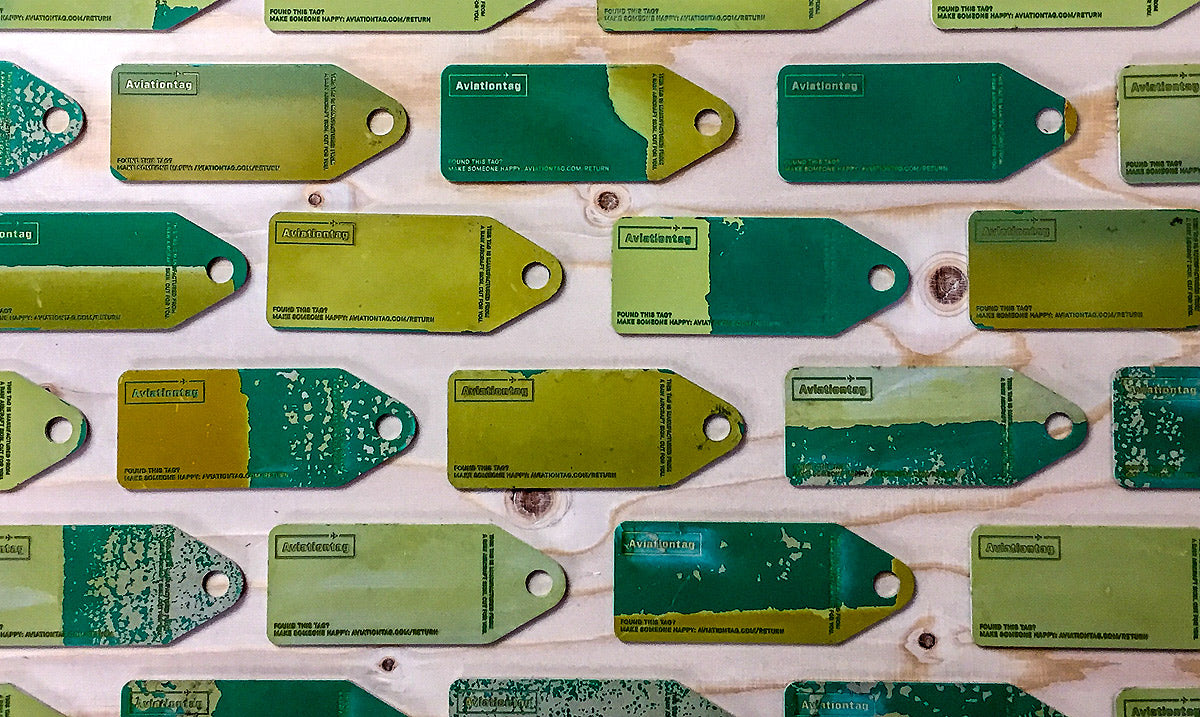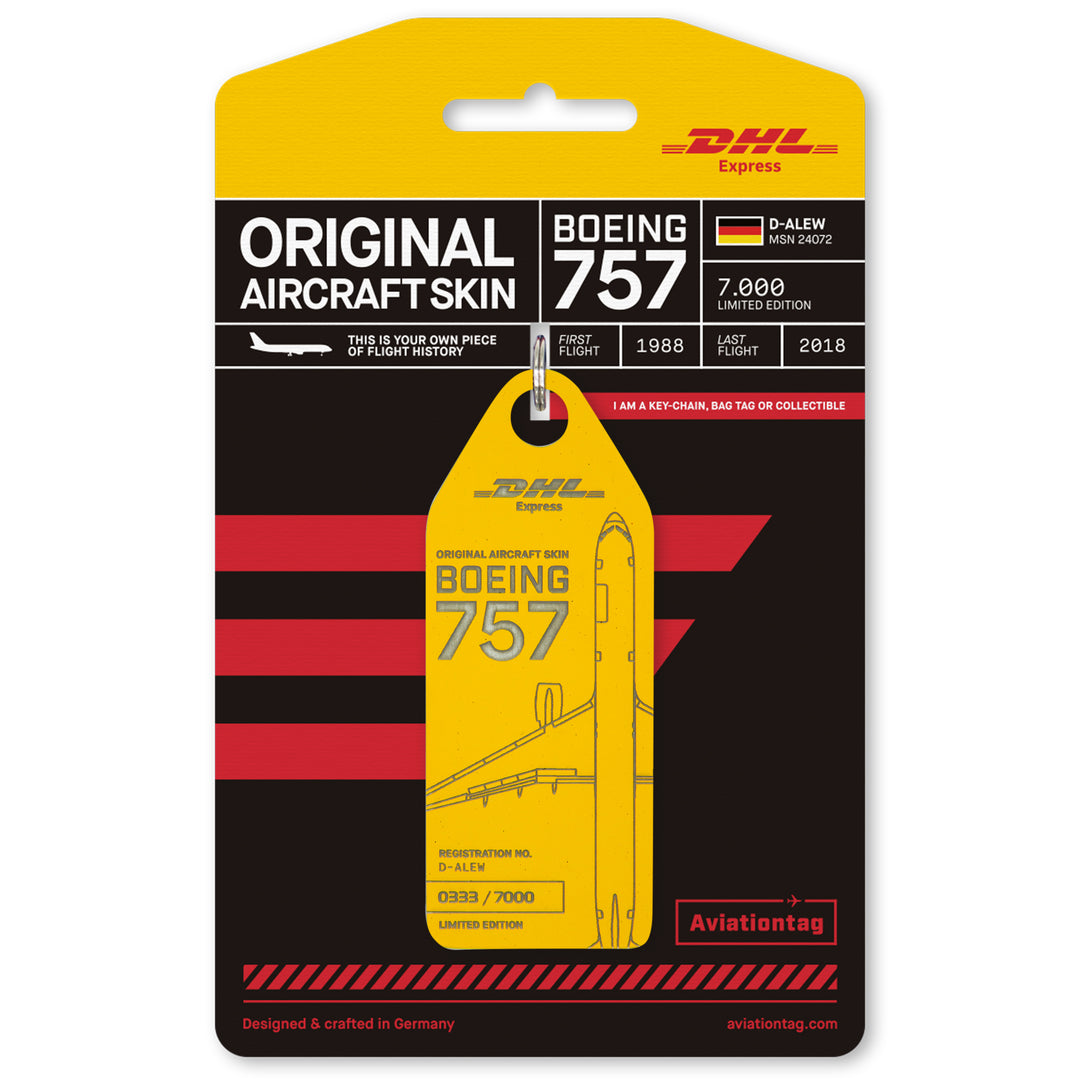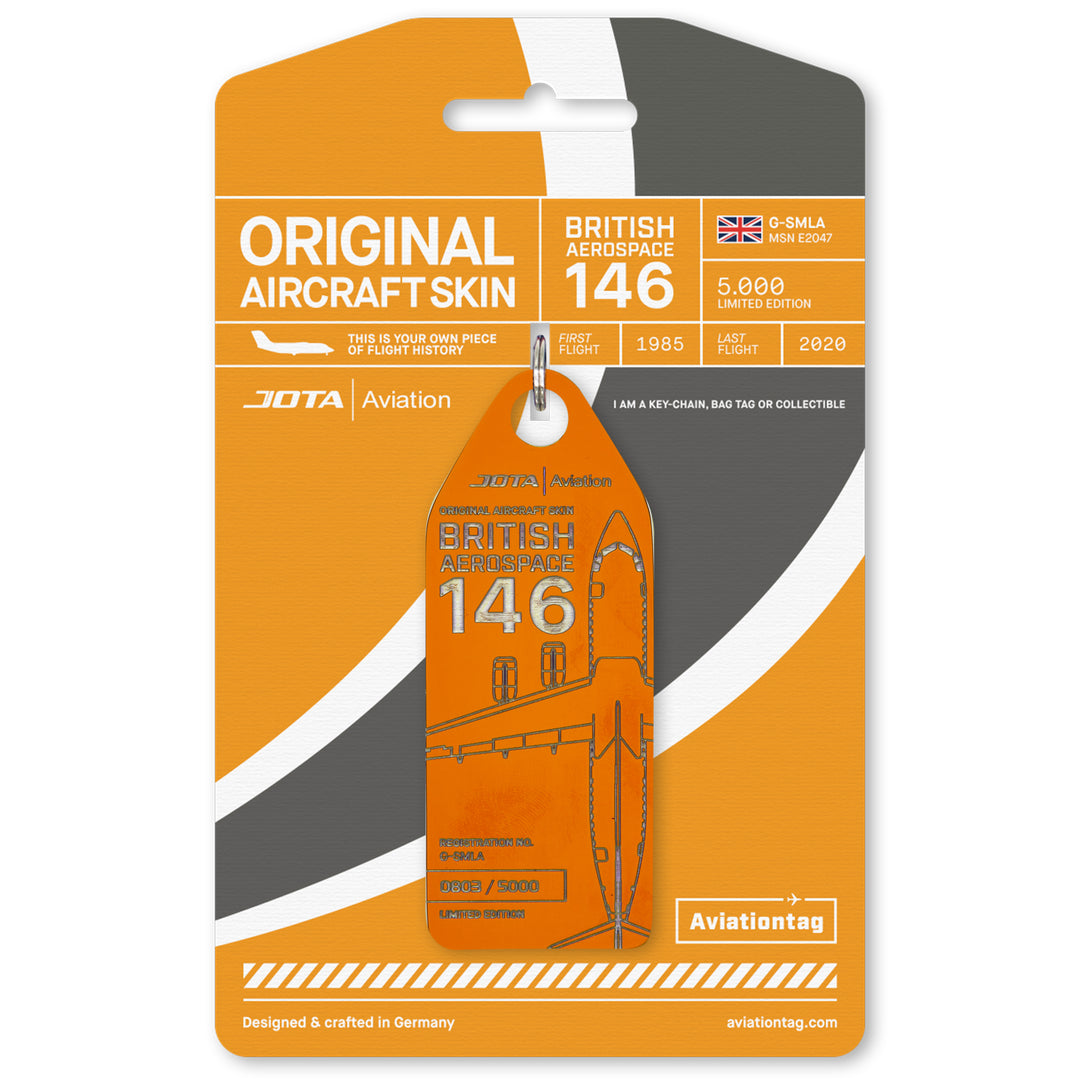The art of being unique
Calling every Aviationtag a work of art would be going too far. But we can safely say that every tag is one of a kind. Why? That’s the question we are aiming to answer in today’s blog post.
On the one hand, the products we sell are brand new, at the same time though you have to remember that they are made only from the original outer skin of what were once commercial aircraft. Some would call it “upcycling”, others would call it capturing living aircraft and airline history.
The planes we use were all in operation for well over 10 years, flew several hundred thousand miles battling wind and weather at altitudes of 10,000 m. Some even spent several years in the blistering sun of their aircraft graveyard in the Mojave Desert, inevitably leading to changes in colouration and variations in the texture of the aircraft’s paint. Imagine your car would have run a million of miles - would it still look new? Of course not. And that is also why our tags often times have scratches - but those scratches are not caused by us but by the many flight hours the plane had.
With most planes, aircraft skin currently consists mainly of an aluminium-copper-magnesium alloy. This is light but stable. The trend is now moving increasingly towards using composite materials (GRP, CRP) though.
Depending on the aircraft and what section we get the skin from, the thickness can also vary greatly. Usually, the skin is thicker on the bottom of the aircraft and between the wings than it is on the top, where the load is also lighter, for example.

On the back, there can be major variations, too. The skin is fixed onto the frames with hundreds of rivets and sometimes also glued in addition. If you see different shades of green on the back of the Aviationtag this means the aircraft skin was on one of the darker parts, for instance on the frames. The line between may well have been where it was glued. Our Boeing 737 Aviationtag from former SAS (SE-DOR) is the perfect example - they are all unique:

So in a nutshell we can say that although the tags vary in colour, thickness and surface texture, they all have one thing in common – they are all one of a kind.
Did you like this post? Let us know in the comment box below and share it with your friends.









Leave a comment